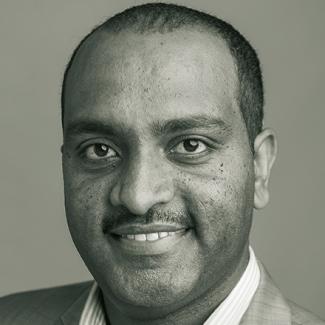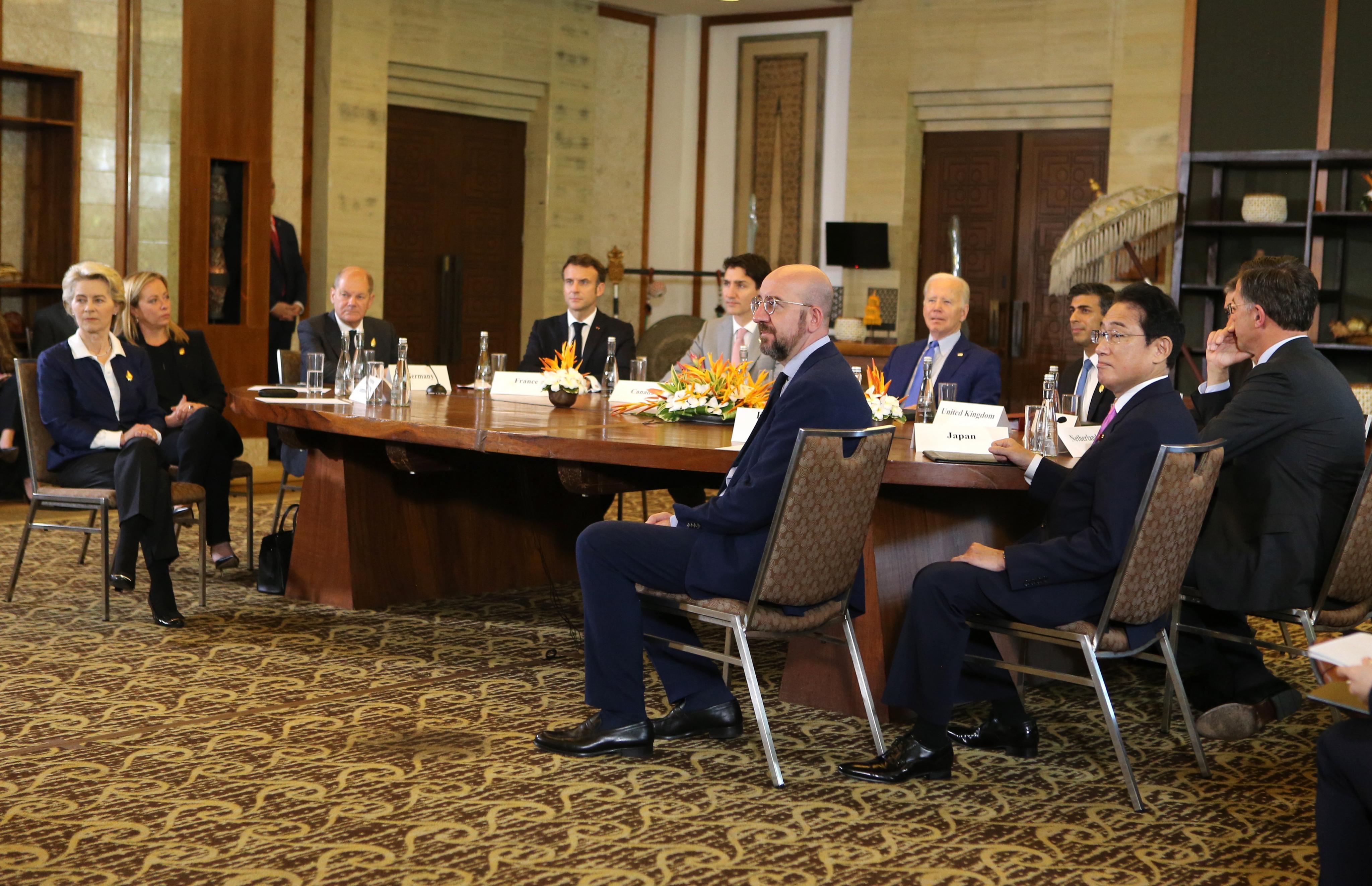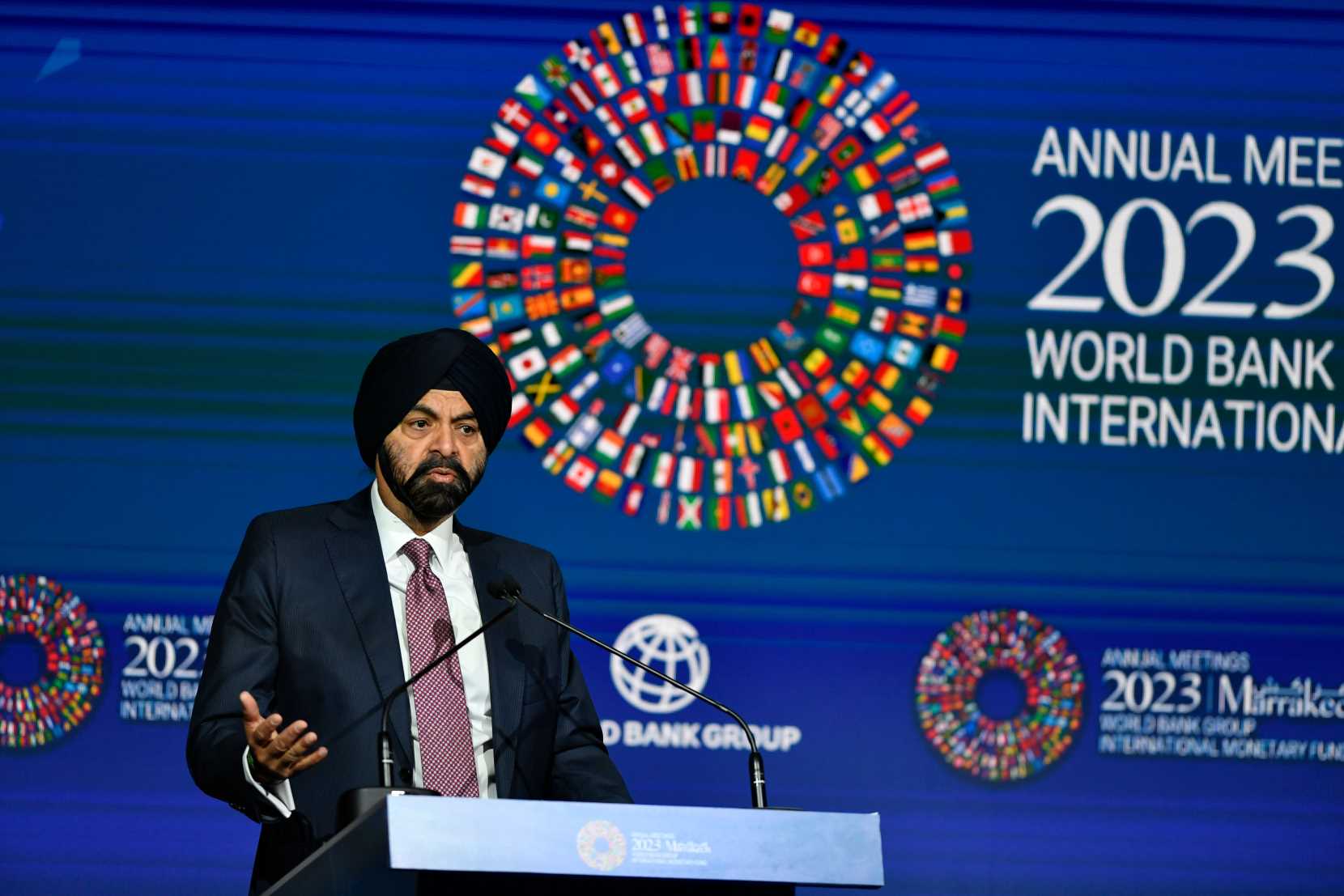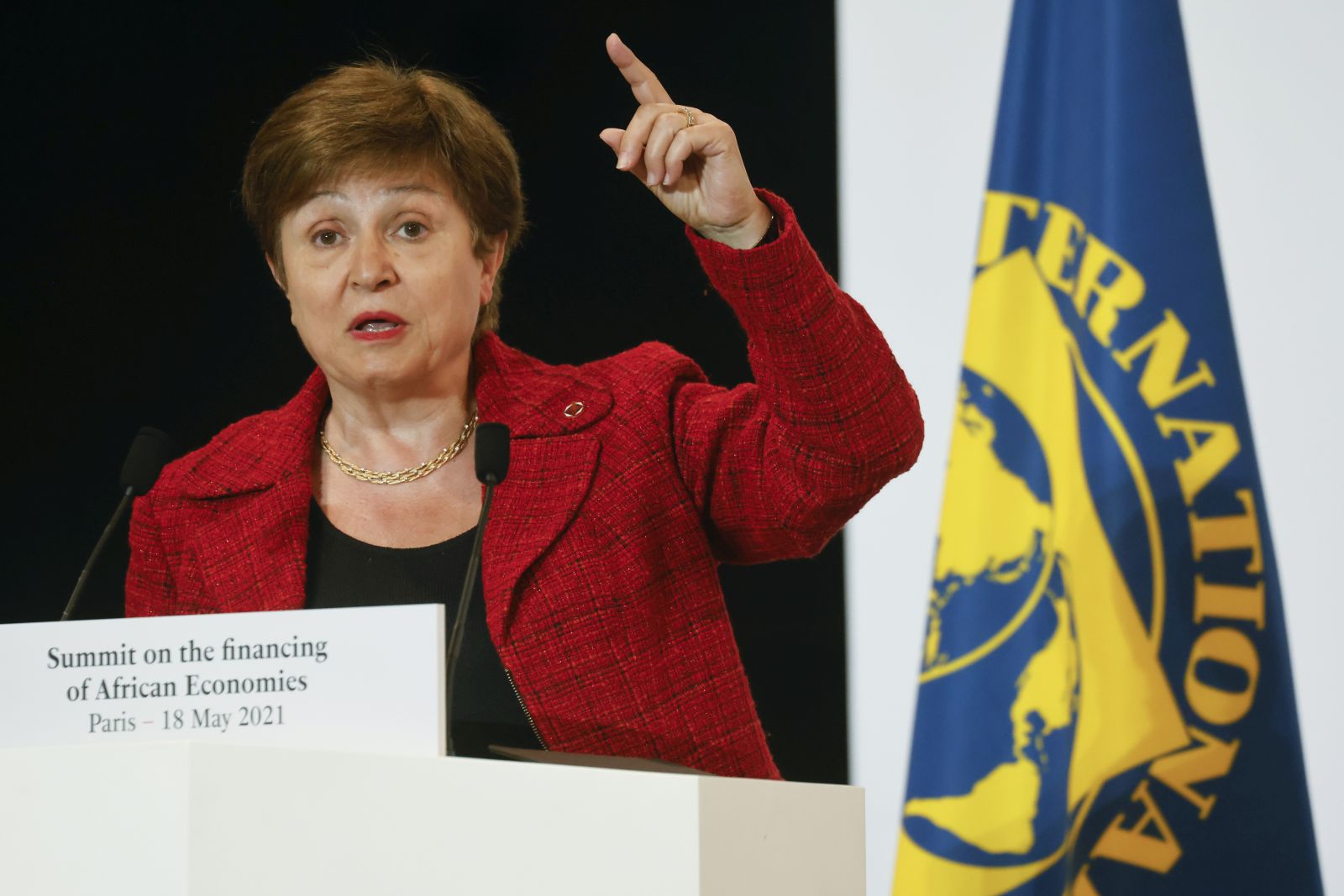Global governance
Reforming development finance
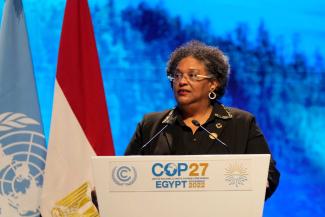
The international community will not achieve its 2030 Agenda. It is well short of its goal of ending poverty by 2030 and implementing the Sustainable Development Goals (SDGs). The Covid-19 pandemic, geopolitical tensions and violent conflicts as well as climate and debt crises have slowed and sometimes reversed progress toward the SDGs and substantially widened already large financing gaps. These crises fuelled inflation, which prompted central banks to significantly increase key interest rates. That has made it more difficult for developing countries to access international financial markets and has added to their debt burdens (Berensmann et al. 2023).
According to World Bank estimates, the total spending needed for developing countries to cope with climate change, pandemics and conflicts will be around $ 2.4 trillion a year between 2023 and 2030 (WB/IMF 2023). To raise that sum, the development finance system needs to be reformed and adapted to the changed macroeconomic environment (Berensmann et al. 2023).
Against this backdrop, a whole string of conferences and initiatives were organised last year in search for innovative solutions. They included Barbados Prime Minister Mia Mottley’s Bridgetown Initiative, the Summit for a New Global Financial Pact initiated by France’s President Emmanuel Macron, the Spring and Annual Meetings of the World Bank and the International Monetary Fund (IMF), the Financing for Development Forum, the G7/G20 meetings, the Africa Climate Summit and the UN Climate Conference in Dubai. Those forums identified a number of important issues that they wanted to address.
Debt restructuring and relief
All initiatives recognise the need for debt restructuring and, if necessary, debt cancellation for highly indebted countries. World Bank and IMF estimate that more than half of all low-income countries are currently heavily indebted. At the end of 2020, the G20 launched the Common Framework for Debt Treatment (CF) to tackle the debt crisis. It is the only multilateral mechanism for debt relief and restructuring currently available. So far, however, only four countries have made use of the instrument: Ethiopia, Zambia, Ghana and Chad. In light of this, the CF should be reformed so it can be implemented more swiftly. All public and private creditors need to be included, and debt agreements must be made transparent.
Moreover, the CF should be made available not only to low-income countries but also to middle-income countries. What is more, debt and climate risks should not be considered separately but addressed simultaneously. IMF and World Bank debt sustainability analyses should incorporate climate risks more comprehensively and take account of investments in climate change adaptation. In the medium term, debt restructuring and relief should be linked with climate crisis management (Berensmann 2023).
Increase in official development and climate finance
At the same time, most initiatives agree that official development and climate finance should be increased. We believe it is crucial that donors should reach the official development assistance (ODA) target of 0.7 % of gross national income in full by 2030 and, as an interim target, at least halve the current shortfall by 2026. In addition, more ODA should flow to the poorest countries. Donors should provide ODA in addition to climate finance – not in place of it – and report climate and development finance separately where possible.
Reform of multilateral development banks
In December 2022, the World Bank’s shareholders agreed on a reform process that should result in more investment in climate protection and other global development goals. Strong support for the move came from key actors such as the USA and Germany. Remarkable milestones in that reform were reached at the 2023 summit in Marrakesh.
First of all, the Bank expanded its mandate beyond poverty reduction and shared prosperity to include the imperative of ensuring a “liveable planet” (WB/IMF 2023). Second, World Bank President Ajay Banga announced in Marrakesh that up to $ 157 billion more lending capacity could be provided over a decade. This was made possible by a basket of measures, including balance sheet optimisation, the injection of hybrid capital and a portfolio guarantee mechanism.
However, while discussions continue, a number of issues still need to be resolved at upcoming summits.
- First, other multilateral development banks (MDBs) are urged to initiate or accelerate their own reform processes and expand their mandates to promote global public goods. However, they should ensure that scarce subsidised (concessional) funds are not diverted from key development objectives. To avoid jeopardising poverty reduction goals, it is crucial to balance the expansion of mandates with a strengthening of financial capacity (Walle and Brandi, 2023).
- Second, there is an urgent need for MDBs – including the World Bank – to substantially increase their financing capacities. By utilising callable capital, for example, they could absorb more risk and expand their lending operations. To this end, they should expand the terms for callable capital and agree on clearer procedures and mechanisms for its call with credit agencies and shareholders.
- Third, the idea of channelling the IMF’s special drawing rights (SDRs) through development banks is a challenging but promising way of expanding MDBs’ financing capacity. The recent proposal by the African Development Bank Group (AfDB) and the Inter-American Development Bank (IDB) merits major consideration at the upcoming summits. SDRs are reserve assets created by the IMF in 1969. IMF members can convert these book credits into other currencies or use them as foreign exchange reserves. SDRs are cheaper for member countries than borrowing on the markets. Moreover, there are no conditions attached to transactions. This innovative mechanism suggested by the two MDBs, which is structured as a hybrid capital instrument, can be treated as equity on MDBs’ balance sheets. Rechannelling SDRs to development banks has a significant advantage because leveraging can increase their value for lending operations by more than fourfold.
Domestic public resources
The mobilisation of domestic resources was not at the forefront of every initiative. However, tax revenue is the most important source of development finance, and a fiscal buffer makes countries more resilient, so reforms at national and international level are important:
First, bilateral and multilateral donor organisations should support countries’ efforts to create efficient tax administrations and tax systems.
Second, technical development cooperation should drive forward the digitalisation of tax administrations and the collection of tax administration data. Data and transparency are needed to assess existing tax structures more effectively and design future tax systems. Two successful initiatives in this area are “Tax Inspectors Without Borders” – which sends tax experts to train tax administration staff in partner countries – and the automatic exchange of tax information, which increases transparency to combat cross-border tax evasion and avoidance.
Third, international tax cooperation should be improved. A promising move in this direction was made in November 2023 with the adoption of a United Nations resolution giving the UN more scope of action on international tax cooperation. In recent years, international tax cooperation has been reformed primarily by implementing the OECD/G20 project on base erosion and profit shifting (BEPS) (Laudage 2023). Many low- and middle-income countries participating in the Inclusive Framework on BEPS still need support in implementing the BEPS reforms, which aim to combat tax avoidance, improve the coherence of international tax rules and tax the digital economy more heavily. The African Union estimates that Africa loses $ 50 to 80 billion a year through illicit financial flows (AU 2019).
Climate targets can be incorporated into these reforms by abolishing unnecessary tax expenditures such as fossil-fuel subsidies in the short term and implementing more green tax reforms (e.g. carbon pricing and environmental taxes) in the long term (Berensmann et al. 2023).
Better involvement of the private sector
Most of the initiatives had a special focus on mobilising private capital. Approaches such as blended finance seek to strengthen and broaden the contributions of private capital, especially international private capital. But private international capital flows such as foreign direct investment or portfolio investment in low- and middle-income countries (excluding China) fell sharply in 2020 during the Covid-19 pandemic.
After a brief recovery in 2021, investors even withdrew capital from these countries in 2022 as inflation and interest rates rose. In view of the difficult macroeconomic environment, greater attention should therefore be paid to mobilising domestic private savings for investment. Domestic savings already finance the bulk of private investment. Moreover, they reduce dependency and vulnerability to shocks on the international financial market.
The channelling of savings for investment can be encouraged by public development banks. Because of their proximity to and extensive knowledge of local markets, these banks can create “safe” domestic investment opportunities and help prevent the outflow of domestic resources into hard-currency assets abroad. In addition, the progressing digitalisation in the financial sector has the potential to give more people access to formal (digital) savings options, so more domestic savings can be mobilised and harnessed for financing investment (Berensmann et al. 2023).
The current global economic situation is making development finance even more important and is increasingly putting it in the spotlight of attention. Summits can help strengthen demands for not only more but also adequate finance for development. To do so, future summits need to be well coordinated and agreements followed up.
References
African Union Commission, 2019: Domestic resource mobilisation: Fighting against corruption and illicit financial flows. Addis Ababa, AUC Publishing.
Berensmann, K., Laudage Teles, S., Sommer, C., & Walle, Y. M., 2023: Development finance at a turning point: Effects and policy recommendations. Discussion Paper, Bonn, IDOS.
Berensmann, K., 2023: The international community must finally provide debt relief. The Current Column of 6 November 2023, Bonn, IDOS.
Laudage Teles, S., 2023: The BEPS Project: achievements and remaining challenges. Briefing Paper 22/2023, Bonn, IDOS.
Walle, Y. M., & Brandi, C., 2023: The ongoing reform of the World Bank. The Current Column of 2 October 2023, Bonn, IDOS.
World Bank / International Monetary Fund, 2023: Ending poverty on a livable planet: Report to governors on World Bank evolution. , Washington DC, Development Committee.
Kathrin Berensmann is a senior researcher and project lead at the German Institute of Development and Sustainability (IDOS).
kathrin.berensmann@idos-research.de
Yabibal M. Walle is a senior researcher at IDOS.
yabibal.walle@idos-research.de
Christoph Sommer is a researcher at IDOS.
christoph.sommer@idos-research.de
Sabine Laudage Teles is an associate researcher at IDOS.

